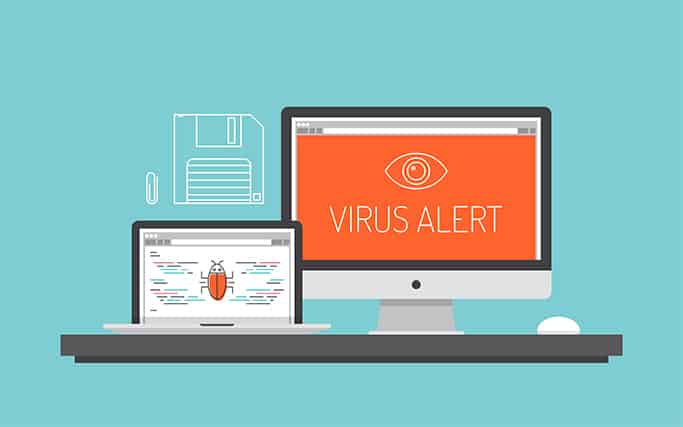Elderly people may be more vulnerable to online threats such as malware, viruses, and identity theft. Antivirus and security software protects against these threats by scanning the computer for potential threats and alerting the user if any are detected. These tools can also protect against identity theft by alerting users to suspicious activity or prompting them to enter additional authentication information. Software tools can make work easier and more efficient. For example, password managers can help create and manage strong, unique passwords for different online accounts, saving time and effort when logging in to websites and apps. Backup software can assist in creating copies of important files and documents, ensuring that important data is not lost if the original is damaged or deleted. Outlook email client software can combine multiple email accounts into a single one. These tools also save time and effort to get work done.

The 8 best software for tools for your parents’ computers are listed below.
- Password Manager
- Outlook Email Client
- Antivirus
- Skype
- TeamViewer
- Amazon Kindle
- Spotify
- Netflix
Table of Contents
1. Password Manager
Elderly parents can have difficulty remembering multiple complex passwords, especially if one has many different online accounts. A password manager can help generate strong, unique passwords and store the credentials so the user doesn’t have to remember every time while logging in. The tool can also keep track of the passwords to ensure the user keeps the passwords.
A password manager is convenient for the elderly when logging in to websites and apps. These individuals can simply click a button or enter a master password to access the saved passwords, saving time and effort.
2. Outlook Email Client
Microsoft Outlook is a personal information manager and email client software developed by Microsoft. The software can be connected to a Microsoft Exchange Server or other email servers to send and receive emails. In addition to managing emails and other personal information, Outlook includes features such as a task manager, a journal, and a note-taking tool.
Outlook has a simple and user-friendly interface, which allows elderly parents to navigate and use the tool. Outlook has clear buttons and menus for easier sending and receiving emails and creating and organizing folders.
Outlook has a feature that allows users to add multiple email accounts and view messages in a single inbox. Adding multiple email accounts to Outlook is helpful for elderly parents, as the software makes managing emails simpler, more convenient, and more organized.
Note:
Parents don’t have to switch between multiple accounts or check multiple inboxes with Outlook. Also, the feature is more convenient for parents when referencing or responding to messages from different accounts. For example, if one has both a personal and a work email account, the individual can view and respond to messages from both accounts in a single place.Outlook has a range of useful features, such as the ability to schedule appointments and tasks, set reminders, and create and share calendars. These features can be particularly helpful for parents who may have busy schedules or need help organizing daily tasks.
3. Antivirus
Elderly parents may be more vulnerable to online threats such as malware and viruses. Anti-virus software helps protect users against these threats by scanning the computer for potential threats and alerting the user if any are detected. This ensures that the computer stays safe and secure and that personal information is not compromised. Security gladiators has a detailed list of the best antivirus software to protect parents’ computers.

Antivirus software protects important data and files on the computer, as the tool can detect and remove threats that may try to delete or corrupt these files. This feature is particularly important for elderly parents with important documents or memories stored on computers.
Elderly parents may be more vulnerable to falling victim to malicious links, which can lead to the installation of malware or other online threats. Antivirus software protects against these threats by scanning links before they are clicked and warning the user if the links are dangerous.
Phishing attacks may be another cybersecurity threat for elderly individuals, which are fraudulent attempts to steal personal information by pretending to be a legitimate organization or person. Anti-virus software scans emails and websites for suspicious activity and warns users when the antivirus detects a threat.
4. Skype
Skype allows parents to make voice and video calls to other Skype users anywhere in the world for free, which can be a convenient and cost-effective way to stay in touch with loved ones. Skype also has features such as instant messaging, screen sharing, and file sharing which help parents communicate and collaborate.
Skype has a simple and user-friendly interface that is ideal for parents. The program also has options for larger text and high-contrast themes which can be helpful for elderly parents with vision impairments.
Skype can be accessed from a computer, smartphone, or tablet, which can be convenient for parents who don’t like carrying a computer around.
5. TeamViewer
TeamViewer is a remote access and remote support tool. TeamViewer allows users to remotely access and control another computer over the internet. This may be ideal for parents needing computer assistance, as someone can remotely access the devices and provide support or troubleshoot any issues.
TeamViewer also allows users to transfer files between computers.
Users can access TeamViewer from various devices making the tool flexible and convenient for parents. Also, the software has a user-friendly interface to make work easier.
6. Amazon Kindle
The Amazon Kindle is an e-reader device that helps people to read books, magazines, and other documents digitally.
The Kindle has a simple and user-friendly interface appropriate for the elderly. The software has large buttons, a clear display and an option for adjusting the font size, making the tool ideal for individuals with vision impairments. Amazon Kindle also has options for text-to-speech and adjustable font and background colors, which can further help with readability.
Note:
The Kindle allows users to download and read various books, magazines, and other documents. This is convenient for parents who may need more access to physical books or who prefer to read digitally.The Kindle is a portable device that can be easily carried and used on the go. This feature is ideal for parents who may want to avoid carrying around physical books or who may travel frequently.
7. Spotify
Spotify is a music streaming service. Spotify allows users to stream a wide range of music, including popular songs, classic hits, and other genres. Spotify can be ideal for the elderly without easy access to physical copies of music or who may prefer to listen digitally.
Spotify allows users to create and customize playlists, which helps select specific preferences for creating a playlist for a particular occasion.
Spotify has a user-friendly interface that allows parents to navigate the program easily. The software also has options for adjusting the volume and setting a sleep timer which may be beneficial for individuals who want to listen to music while falling asleep.
8. Netflix
Netflix is a streaming service that provides access to movies (like The Godfather), TV shows, documentaries, and local films. For elderly parents who may be isolated or lonely, watching movies and TV shows on Netflix can provide a sense of companionship and something to look forward to each day. Watching can improve cognitive function in older people by stimulating and keeping the brains active.

Netflix allows users to stream a wide range of entertainment, which can be a good source of enjoyment for elderly parents. The program has a variety of genres and types of content, including comedies, dramas, and investigative, which can appeal to different interests and preferences. Check out Shameless on Netflix, a comedy-drama series worth watching.
Netflix allows users to create profiles and customize recommendations based on the user’s viewing history. The feature may help parents with specific preferences or who want to discover new shows and movies.
Netflix has options for subtitles and audio descriptions for parents with hearing or vision impairments.
What Are the Dangers of the Elderly Using Computers?
Below is a list of potential security threats elderly individuals may face when using computers.
- Scams and fraud: Older parents are vulnerable to scams and fraud, as these users may not be as familiar with online threats or maybe more trusting. The elderly should be cautious when giving out personal information or making online purchases and be aware of common scams such as phishing attacks and fraudulent websites. Creating awareness may help.
- Malware and viruses: Parents are prone to malware and viruses. Strong and up-to-date passwords can help protect parents’ computers against viruses that may steal information.
- Data loss: Elderly data such as videos and photos may be stored on computers, and the risk of data loss due to hardware failures or malware can be a concern. Backing up data is important in protecting against these risks regularly.
- Phishing attacks: Since parents trust easily, cybercriminals may trick the elderly into giving personal information or clicking on malicious links.
- Unsecured networks: Elderly individuals are more likely to use unsecured networks when accessing the internet, making them vulnerable to cyber-attacks.
How Can Good Software Help the Elderly?
Good software tools can be beneficial in several ways. Here are a few ways how software tools can help elderly parents:
- Protection from scammers: Software can be designed with features that help protect elderly individuals from scammers and other online threats. Antivirus software can prevent malware infections, and security features such as two-factor authentication can help prevent unauthorized access to accounts.
- Ease of use: An ideal software should be easy with clear instructions and simple interfaces. This can help reduce frustration and reduces work for elderly individuals to use the software effectively.
- Straightforward communication: Good software allow communication with others in a straightforward and easy-to-use manner. For example, messaging apps should have large buttons and clear text, and video call software should have clear audio and video.
- Reminders: Software that includes reminders can be very helpful for elderly individuals, as the program assists in reminding parents of important tasks and appointments. For example, a medication reminder app can help elderly individuals remember to take medication on schedule.
- Staying Organized: Good software can help the elderly stay organized and manage daily tasks and responsibilities. Personal finance software can also help seniors manage their finances, including creating budgets, tracking expenses, and paying bills.
What Are Other Ways To Help the Elderly With Tech

Apps for phone/tablet devices: Many apps are ideal for elderly individuals, such as medication reminder apps, exercise and wellness apps, and communication apps.
Smartwatch: A smartwatch is beneficial for elderly individuals, as the watch provides quick access to important information and features, such as the time, weather, and notifications. Some smartwatches also have features that may assist with health and wellness, such as heart rate monitoring and exercise tracking.
Personal alarm for emergencies: A personal alarm can be a valuable tool that enables the elderly to call for help in the event of an emergency quickly. These devices can be carried on the person or placed in a central location, and the gadgets often have a button that can be pressed to summon assistance.
Smart home devices: Smart home devices such as doorbells, door locks, security cameras, and thermostats are ideal for elderly individuals. Users should consider some of the best smart locks to ensure maximum security. A smart doorbell allows an elderly individual to see and communicate with visitors without physically opening the door. A smart thermostat enables individuals to adjust the temperature in homes remotely.

